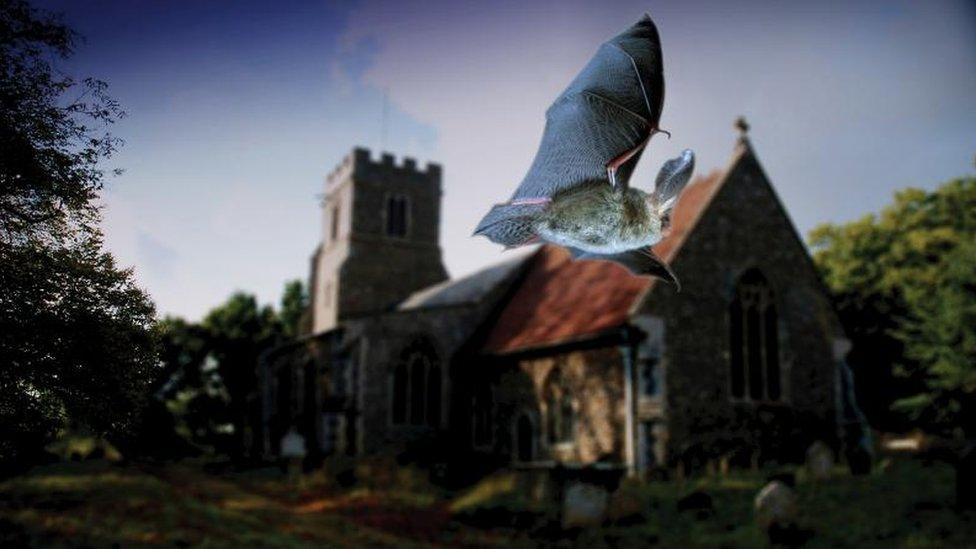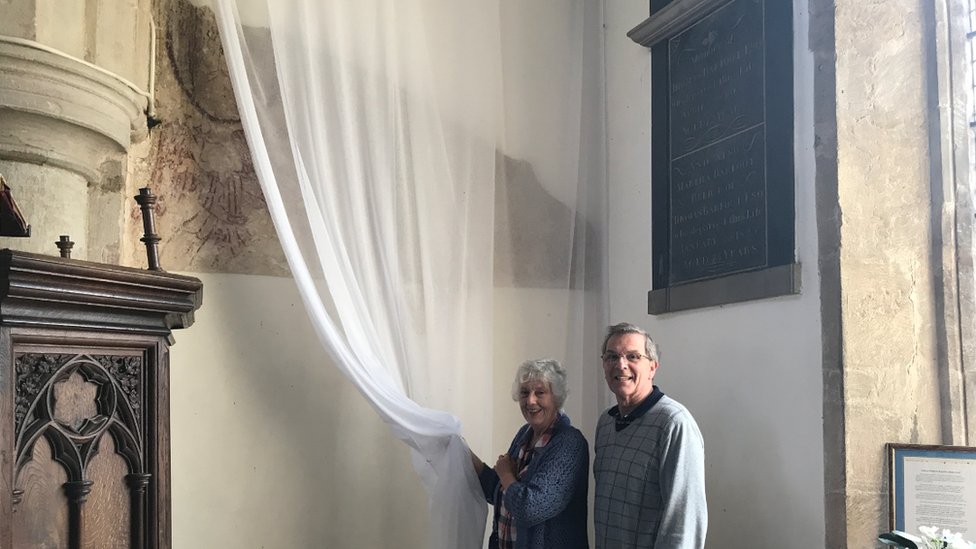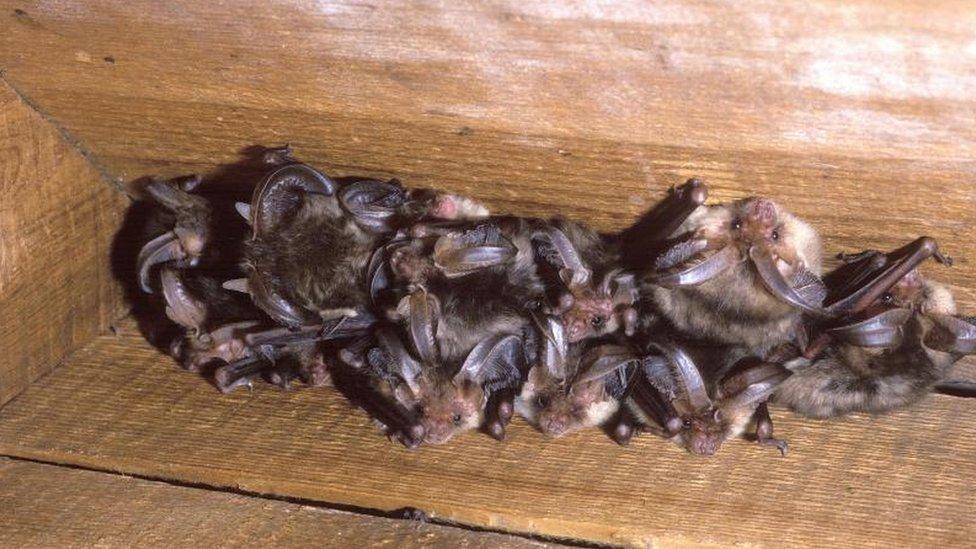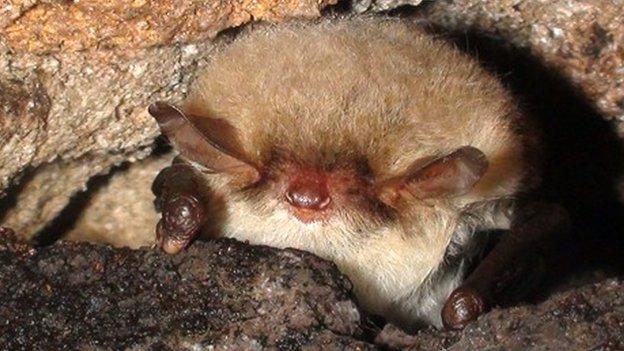Churches chosen to try to solve 'national' bat problem
- Published

Bats regularly roost and hibernate in churches
Three churches have been chosen to pilot a £3.8m scheme to solve the "national problem" of bats damaging churches.
The Heritage Lottery Fund (HLF) said it hoped the money would allow bats to live "in harmony" with congregations.
It added it viewed the cash as "a practical solution" to the problem.
The churches involved in the pilot, before the project is rolled out, are in Rutland, Norfolk and Lincolnshire.
Live updates and more from the East Midlands
Bats regularly hibernate and roost in churches because of a fall in the number of woodland habitats across the country.
This can be problematic as their droppings can restrict activities, damage historic artefacts and put a strain on volunteers who look after the building.

Braunston All Saints, Rutland, have been forced to cover a 600-year-old stone to protect it from bat droppings
Braunston All Saints, in Rutland, Holy Trinity, in Tattershall, Lincolnshire and All Saints Church, in Swanton Morley, Norfolk are the three churches involved in the pilot.
Holy Trinity said it did not yet know which techniques would be tested, but said it hoped for help finding a way of stopping bats from roosting in a particular part of the church and help with cleaning.
The project will be rolled out to 20 churches across the UK in March 2018.

What does the law say about bats?

It is a criminal offence if you:
Deliberately capture, injure or kill a bat.
Intentionally or recklessly disturb a bat in its roost or deliberately disturb a group of bats.
Damage or destroy a bat roosting place (even if bats are not occupying the roost at the time).
Possess or advertise/sell/exchange a bat (dead or alive) or any part of a bat.
Intentionally or recklessly obstruct access to a bat roost.
Source: Bat Conservation Trust, external

Gail Rudge, from Braunston All Saints, said: "If we could keep them [the bats] out, without hurting them or impeding their life cycle in any way, we would be happy.
"We would be living in balance again."
Ros Kerslake, chief executive of the HLF, added: "We welcome this unprecedented co-operation between church leaders and bat conservationists.
"It's a positive move forward and should provide a practical solution to what has become a national problem."
- Published25 September 2014
